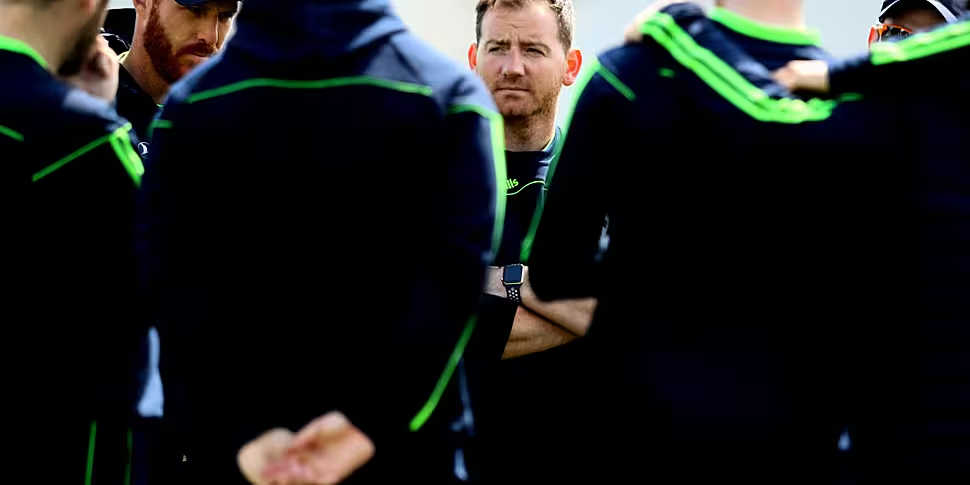The man charged with keeping Cricket Ireland internationals primed and ready for battle is 'thinking on his feet' while the players are in limbo.
Mark Rausa should be in Zimbabwe with the men's team preparing for the postponed six-match series while the women's side are missing out on their Quadrangular Tournament in Thailand ahead of the World Cup qualifiers.
Both tours were postponed as the coronavirus pandemic spread over the last couple of weeks.
"In the weeks leading up to those tours, we would have been in the gym four days-a-week to physically prepare the players for each tour," says Rausa who is unable to have any contact with players as he complies with the current government protocols.
"Given the current restrictions, I cannot visit players and do any form of manual treatment..
"So, it’s a real challenge with what we can do, especially from a physiotherapist perspective as it usually requires you to be in close proximity to your player/patient."
Rausa has over ten years of clinical experience working with elite level athletes, including at the Welsh Institute of Sport, the England Lions and Glamorgan County Cricket Club.
He moved to Cricket Ireland in August 2018 to oversee the organisation’s sports science and medical services and with the help of his team is coming up with different ways to continue their work with the players.
"Working with our Strength & Conditioning coaches Brendan Connor and Greg Hollins, we have provided our players with new home-based fitness programmes, and encouraged them to use equipment suitable for home use and running in open spaces close to home to get their aerobic work done," he explains.
"We are fortunate at the moment as we don’t have a large number of players requiring heavy injury input, but we are managing a few issues remotely.
"I have been sending on home-based rehab plans to players and having some video call-based rehab sessions, which so far have been valuable."
As well as his strength and conditioning people, Rausa has a science and medicine team with whom he is keeping in regular contact using teleconferencing software and phone.
The same goes for the players who know they can contact him whenever they need.
"These sessions are used to discuss where the players are according to their self-reporting and if we need to restrict or progress any part of their programmes or rehab," says Rausa.
"I am also keeping in touch with players myself via video call and phone. The players are also encouraged to call me anytime to discuss any issues they have.
"So far things are working as well as they can. However, there is no substitute for face-to-face interaction, treatments and a great working environment as a group.
"At the moment we just need to think on our feet as how to keep our players motivated and competitive as it’s easy to feel isolated."
Even though the players are are unable to meet them face-to-face, Rausa and his team can still record valuable analysis and aid each individual with more than just the physical side of their well-being.
"The players have remote access to our athlete monitoring system, and are required to score themselves on things like muscle and joint soreness, sleep quality and overall wellness," he adds.
"We get a pretty good gauge where the players are with this information - it allows us to modify any workload or flags that we may need to contact the player directly if we have any concerns to work through.
"We are trying to take as holistic and inter-disciplinary an approach as possible.
"The programme we have in place is not just general health and fitness, but takes input from a nutritionist to make sure players are eating right, and input from psychology and mental health services.
"This is key at the moment, not just from a performance viewpoint, but from an overall mental emotional health viewpoint given the current circumstances.
"Our performance analysts have also been working hard to provide players with video of themselves and opponents to work through."









